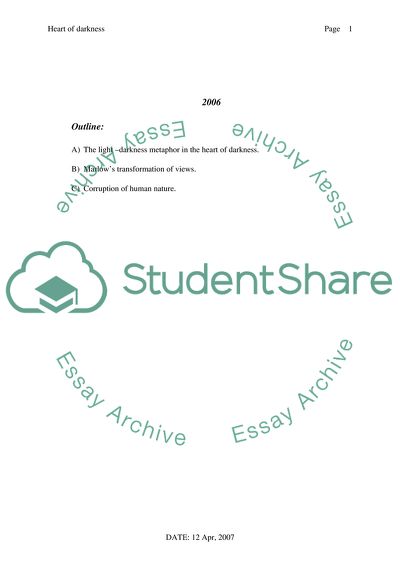Heart of Darkness by Joseph Conrad Book Report/Review Example | Topics and Well Written Essays - 1750 words. https://studentshare.org/literature/1706926-heart-of-darkness-by-joseph-conrad
Heart of Darkness by Joseph Conrad Book Report/Review Example | Topics and Well Written Essays - 1750 Words. https://studentshare.org/literature/1706926-heart-of-darkness-by-joseph-conrad.


